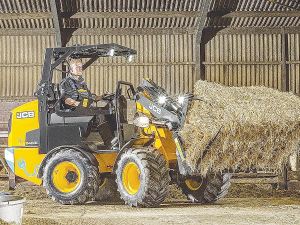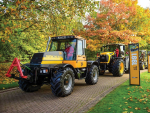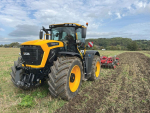British based JCB recently celebrated the milestone of producing one million engines.
Chairman Anthony Bamford acknowledged the company’s teams around the world, noting that to have made one million engines in 20 years was a major achievement and a significant moment for the business.
“The JCB engine is very well respected around the world for its reliability and very well appreciated by our customers,” said Bamford. “Our machines work in dirty, hot and cold climates, and from the moment they go to a customer, they are working hard and doing a full day’s shift. The engine really is the beating heart of that reputation for reliability.”
The first JCB engines were designed by Lord Bamford’s father, who passed away in 2001 and did not live to see the engines go into full production. Engine production commenced in 2004 at JCB Power Systems in Foston, Derbyshire, in the UK, followed in 2010 by the site in Ballabgarh, Delhi, India. Currently, the company produces a total of around 500 engines daily.
Never far from the record books, JCB engines have featured in a series of world records, including the dualengined Dieselmax Streamliner that still holds the record for the fastest diesel-powered car, reaching a speed of 350.092 mph in 2006 at the Bonneville Salt Flats in Utah. Meanwhile, a JCB Fastrac tractor broke the record for the fastest tractor in 2019, equipped with a 7.2-litre six-cylinder Dieselmax engine to hit a top speed of 135.191 mph.
More recently, alongside the diesel engines, the company continues to develop a hydrogen internal combustion engine, with around 120 units manufactured, fitted to a variety of machines and currently undergoing long-term evaluation.











